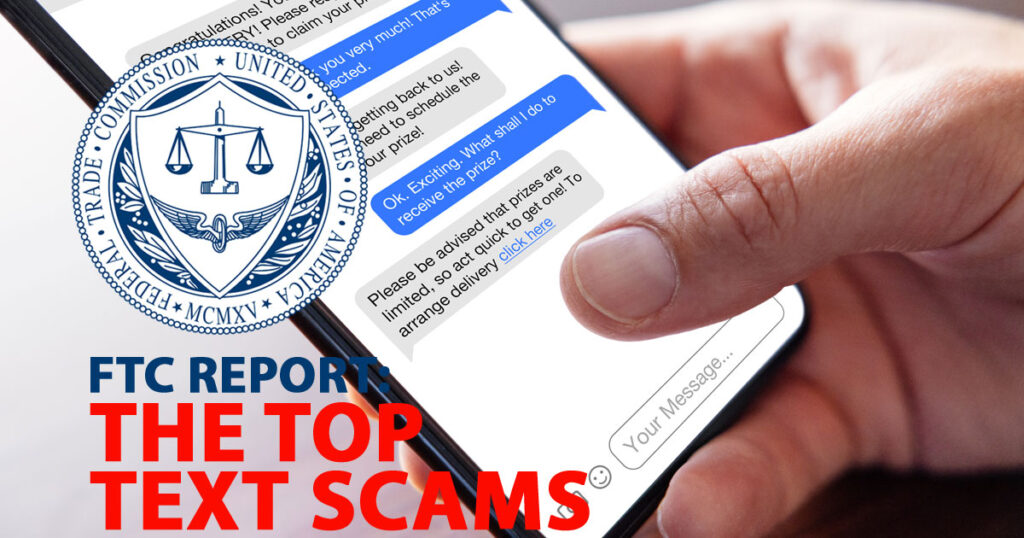The U.S. Federal Trade Commission (FTC) has published a data spotlight outlining the most common text message scams. Phony bank fraud prevention alerts were the most common type of text scam last year. Read the full report here.
Here are the top five text scams reported by the FTC:
- Copycat bank fraud prevention alerts
- Bogus “gifts” that can cost you
- Fake package delivery problems
- Phony job offers
- Not-really-from-Amazon security alerts
How do these scams work?
- Copycat bank fraud prevention alerts: Scammers send text messages that look like they’re from your bank, warning you about suspicious activity in your account. They may ask you to call a number or reply with a code to verify your identity. If you do, the scammers will try to steal your personal information or money.
- Bogus “gifts” that can cost you: Scammers send text messages offering you free gifts, like gift cards or concert tickets. They may ask you to click on a link or provide your personal information to claim the gift. But if you do, the scammers will steal your information or charge your credit card.
- Fake package delivery problems: Scammers send text messages pretending to be from the U.S. Postal Service, FedEx, or UPS. They may say that there’s a problem with a package you’re expecting and ask you to click on a link or provide your personal information to resolve the issue. But if you do, the scammers will steal your information or charge your credit card.
- Phony job offers: Scammers send text messages offering you job opportunities, like mystery shopper positions or work-from-home jobs. They may even send you a check to start working. But if you deposit the check, it will bounce, and the scammers will be able to steal your money.
- Not-really-from-Amazon security alerts: Scammers send text messages that look like they’re from Amazon, warning you about suspicious activity in your account. They may ask you to click on a link or provide your personal information to verify your identity. If you do, the scammers will try to steal your Amazon account information or money.
How can you protect yourself from text scams?
- Never click on links in text messages from unknown senders.
- Never provide your personal information in response to a text message from an unknown sender.
- Be suspicious of any text messages that ask you to verify your identity or provide payment information.
- If you’re unsure whether a text message is legitimate, contact the company directly using a phone number or website you know is legitimate.
Citynet offers security awareness training from industry leader KnowBe4.
The KnowBe4 security awareness training platform teaches your employees how to identify and avoid text scams, as well as other types of online fraud.
To learn more about our security awareness training, click here or call us at 1.844.CITYNET (844.248.9638)
Be sure to share this blog post with your colleagues, friends, and family!
Stay safe!
Stop, Look, and Think. Don’t be fooled.








